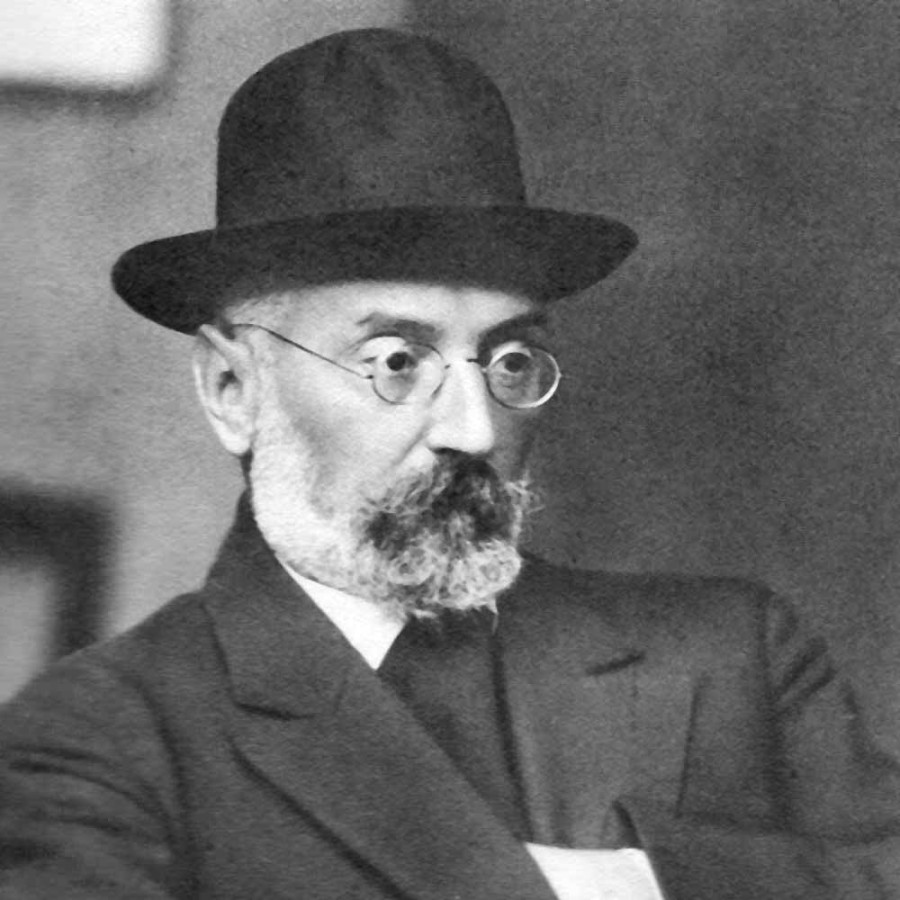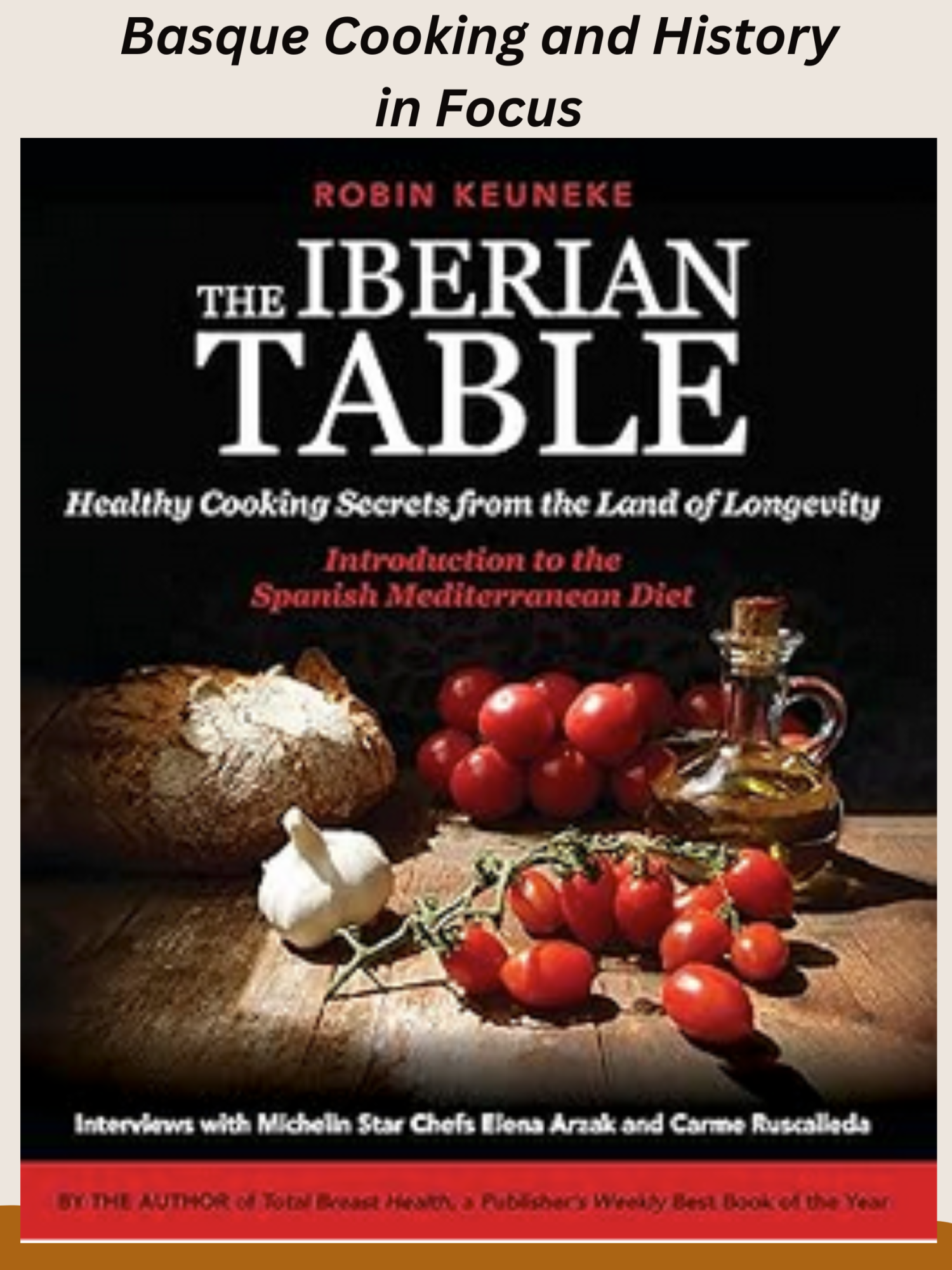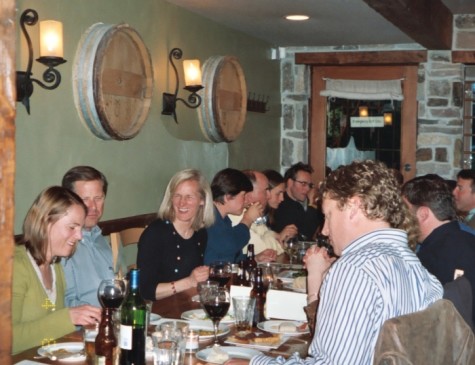Miguel de Unamuno: Basque writer and philosopher
June 1, 2021
Miguel de Unamuno was a very famous Basque philosopher and writer. He wrote novels, poems and plays and served as rector of the University of Salamanca for many years. He lived in a controversial political period in Spain’s history and was exiled and put under house arrest for speaking out.
Unamuno was born on Sept. 29, 1864, in the port city of Bilbao. Unamuno’s father, Felix, a baker, died when he was six, and his mother, Salomé Jugo, provided her children with a deeply Catholic upbringing, according to Poets.org. As a child, he studied in Bilbao at the Colegio de San Nicolas and the Instituto Vizcaíno, said the website Kirjusto. Unamuno at one time wished to become a priest, but his love for a childhood sweetheart, Concepción Lizárraga, kept him from the priesthood, reported Poets.org.
MORE REPORTS FROM EUSKAL KAZETA
Five Generations and 100 Years of Basque Cider
An Artist’s Favorite Basque Books
Unamuno attended the University of Madrid, where he studied languages and philosophy and received a PhD in 1884. He returned to Bilbao after school. As a young man, he was interested in the Basque language, and according to Goodreads, he competed for a teaching position in the Instituto de Bilbao, against Sabino Arana. The contest was finally won by the Basque scholar Resurrección María de Azcue.

This book is a philosophical
essay on the war between faith
and reason, a controversy that
continues today.
In 1891 he became a professor of Greek at the University of Salamanca. Later that year, he married his childhood sweetheart, Concepción; together they would have ten children, Poets.org reported.
In 1900, Unamuno became the rector at the university. The website Kirjusto reported that he mastered 14 languages and learned Danish in order to read Kierkegaard. Throughout his life he would publish essays on metaphysics, politics, religion, and travel; he also published over ten novels and a number of plays. – See more at Poets.org.
Unamuno was part of the “Generación del ’98,” a group of intellectuals including writers and poets who were active in Spain at the time of the Spanish-American War. They commented on the moral, political and social crisis resulting from Spain’s loss of the colonies of Cuba, Puerto Rico and the Philippines due to the war. They were critical of the Spanish government.
Unamuno suffered a crisis of faith after the death of one of his sons, and during his lifetime addressed issues of immortality, belief in God and religion.

Abel Sanchez is his most
famous novel.
Political events forced a change in Unamuno’s life. In 1924, General Miguel Primo de Rivera launched a successful military coup in Spain. Unamuno published a number of articles critical of the new government; he was exiled without his family in 1924 to the island of Fuerteventura in the Canary Islands. His exile brought him international attention and acclaim. He escaped from Fuerteventura and headed to Paris on a private boat – See more at: Poets.org. During his French exile, he spend several years in the Basque coastal town of Hendaye near the Spanish border.
Political controversy surrounded his death. Poets.org related that after King Alfonso of Spain removed the dictator, Primo de Rivera, in 1930, Unamuno triumphantly returned home and regained his position as rector at the University of Salamanca. When General Franco took power in 1936, many of Unamuno’s friends and colleagues were executed. At university convocation, the poet angrily denounced Franco’s rebellion. General Franco gave permission to shoot him, but to avoid an international incident, the poet was confined to strict house arrest, where he died on New Year’s Eve, Dec. 31, 1936.
The following poem — about coming home — is about the Basque Country
De Vuelta a Casa
Por Miguel de Unamuno
Desde mi cielo a despedirme llegas
fino orvallo que lentamente bañas
los robledos que visten las montañas
de mi tierra, y los maíces de sus vegas.
Compadeciendo mi secura, riega
montes y valles, los de mis entrañas,
y con tu bruma el horizonte empañas
de mi sino, y así en la fe me anegas.
Madre Vizcaya, voy desde tus brazos
verdes, jugosos, a Castilla enjuta,
donde fieles me aguardan los abrazos
de costumbre, que el hombre no disfruta
de libertad si no es preso en los lazos
de amor, compañero de la ruta.
The Snowfall Is So Silent
By Miguel de Unamuno
Translated by Robert Bly
The snowfall is so silent,
so slow,
bit by bit, with delicacy
it settles down on the earth
and covers over the fields.
The silent snow comes down
white and weightless;
snowfall makes no noise,
falls as forgetting falls,
flake after flake.
It covers the fields gently
while frost attacks them
with its sudden flashes of white;
covers everything with its pure
and silent covering;
not one thing on the ground
anywhere escapes it.
And wherever it falls it stays,
content and gay,
for snow does not slip off
as rain does,
but it stays and sinks in.
The flakes are skyflowers,
pale lilies from the clouds,
that wither on earth.
They come down blossoming
but then so quickly
they are gone;
they bloom only on the peak,
above the mountains,
and make the earth feel heavier
when they die inside.
Snow, delicate snow,
that falls with such lightness
on the head,
on the feelings,
come and cover over the sadness
that lies always in my reason.
It is Night, in My Study
By Miguel de Unamuno
Translated by Lillian Jean Stafford and William Stafford
It is night, in my study.
The deepest solitude; I hear the steady
shudder in my breast
–for it feels all alone,
and blanched by my mind–
and I hear my blood
with even murmur
fill up the silence.
You might say the thin stream
falls in the waterclock and fills the bottom.
Here, in the night, all alone, this is my study;
the books don’t speak;
my oil lamp
bathes these pages in a light of peace,
light of a chapel.
The books don’t speak;
of the poets, the meditators, the learned,
the spirits drowse;
and it is as if around me circled
cautious death.
I turn at times to see if it waits,
I search the dark,
I try to discern among the shadows
its thin shadow,
I think of heart failure,
think about my strong age; since my fortieth year
two more have passed.
Toward a looming temptation
here, in the solitude, the silence turns me–
the silence and the shadows.
And I tell myself: “Perhaps when soon
they come to tell me
that supper awaits,
they will discover a body here
pallid and cold
–the thing that I was, this one who waits–
just like those books quiet and rigid,
the blood already stopped,
jelling in the veins,
the chest silent
under the gentle light of the soothing oil,
a funeral lamp.
I tremble to end these lines
that they do not seem
an unusual testament,
but rather a mysterious message
from the shade beyond,
lines dictated by the anxiety
of eternal life.
I finished them and yet I live on.
Famous Quotes by Miguel de Unamuno
Life is doubt,
And faith without doubt is nothing but death.
The man of flesh and blood; the one who is born, suffers and dies – above all, who dies; the man who eats and drinks and plays and sleeps and thinks and wills; the man who is seen and is heard; the brother, the real brother.
At times to be silent is to lie. You will win because you have enough brute force. But you will not convince. For to convince you need to persuade. And in order to persuade you would need what you lack: Reason and Right.
Cure yourself of the affliction of caring how you appear to others. Concern yourself only with how you appear before God, concern yourself only with the idea that God may have of you.



 Donate
Donate


